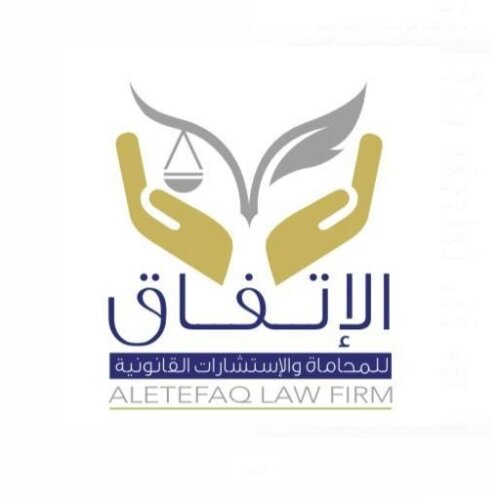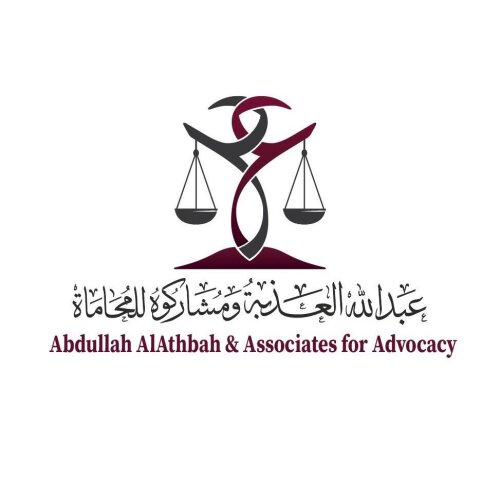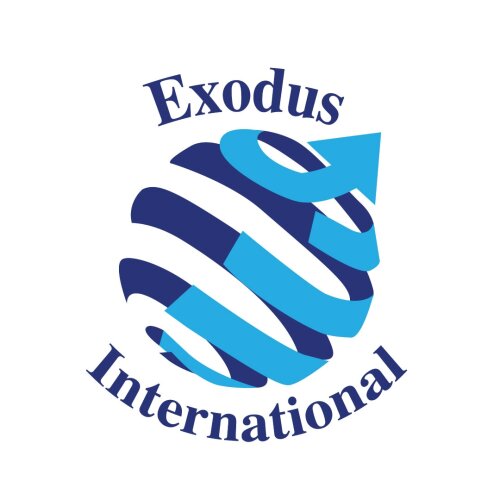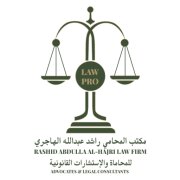Best Lawsuits & Disputes Lawyers in Doha
Share your needs with us, get contacted by law firms.
Free. Takes 2 min.
List of the best lawyers in Doha, Qatar
About Lawsuits & Disputes Law in Doha, Qatar
In Doha, Qatar, the legal framework governing lawsuits and disputes is influenced by a combination of Islamic legal principles (Sharia law) and civil law traditions. The Qatari court system is composed of various levels, including the Court of First Instance, the Court of Appeal, and the Court of Cassation, which is the court of last resort. Lawsuits and disputes often pertain to issues such as breach of contract, employment disagreements, debt recovery, property disputes, and family law matters. The legal process in Qatar can be complex, necessitating proper legal representation to navigate effectively.
Why You May Need a Lawyer
There are several situations where individuals or businesses may require legal advice or representation in the context of lawsuits and disputes in Doha:
- Breach of Contract: If a party fails to uphold their end of a contractual agreement, legal action may be required to resolve the issue or seek compensation.
- Employment Disputes: Disagreements between employers and employees, such as wrongful termination or unpaid wages, often necessitate legal intervention.
- Debt Recovery: Legal assistance may be needed to recover debts from individuals or businesses that refuse to pay what they owe.
- Property Disputes: Issues arising from property ownership, boundary disputes, or landlord-tenant disagreements can often become legal matters.
- Family Law: Divorce, child custody, and inheritance issues often require legal expertise to navigate effectively.
Local Laws Overview
Understanding the local laws in Doha, Qatar, is essential for effective navigation of lawsuits and disputes. Key aspects include:
- Civil Law: Governed by the Qatar Civil Code, civil law addresses disputes between individuals and organizations regarding rights and obligations.
- Commercial Law: This governs business transactions, including partnerships, companies, and trade contracts.
- Labor Law: The Qatar Labor Law outlines the rights and responsibilities of employers and employees, including work hours, leave, and termination procedures.
- Sharia Law: Often applicable in Family Law, including marriage, divorce, and inheritance, emphasizing the importance of consulting with a lawyer familiar with Sharia principles.
Frequently Asked Questions
What should I do if I receive a legal notice?
Upon receiving a legal notice, it is crucial to consult with a lawyer to understand the implications and determine an appropriate response.
How long does it take to resolve a lawsuit in Doha?
The duration of a lawsuit can vary based on its complexity and court availability, ranging from a few months to several years.
Can I represent myself in a Qatari court?
While self-representation is possible, it is often advisable to hire a lawyer due to the complexity of legal procedures and language barriers.
What is the cost of hiring a lawyer in Doha?
Legal fees in Doha can vary widely, depending on the lawyer's experience, case complexity, and duration. It’s best to discuss fees upfront with your lawyer.
Is mediation an option in Qatar for resolving disputes?
Yes, mediation is encouraged as an amicable way to resolve disputes and can be a faster, cost-effective option compared to court proceedings.
What documents are needed for filing a lawsuit?
Essential documents include identification, contracts, correspondence, and any evidence related to the dispute. Your lawyer will guide you on specific requirements.
Are court proceedings public in Qatar?
Court proceedings are generally not public, maintaining confidentiality especially in family law cases.
Can foreign nationals file lawsuits in Qatar?
Yes, foreign nationals can file lawsuits, and it may be beneficial to work with a lawyer with experience in international law.
What happens if I lose my case?
If you lose a case, you may have the option to appeal the decision. Your lawyer can advise on the feasibility and process of appealing.
How can I enforce a court judgment in Qatar?
Enforcing a judgment involves legal procedures such as asset seizure or wage garnishment, which your lawyer can help facilitate.
Additional Resources
The following resources can be helpful for those seeking legal advice on lawsuits and disputes in Doha:
- Qatar Legal Portal: Provides comprehensive legal information and resources.
- Ministry of Justice - Qatar: Offers services related to legal procedures and public notary.
- Qatar International Court and Dispute Resolution Centre (QICDRC): Specializes in commercial dispute resolution.
Next Steps
If you require legal assistance for a lawsuit or dispute in Doha, consider taking the following steps:
- Consult with a reputable lawyer who specializes in the area of your legal issue.
- Prepare all relevant documentation and evidence related to your case.
- Discuss the potential outcomes, associated costs, and timeframes with your lawyer.
- Consider alternative dispute resolution methods, such as mediation, if applicable.
Taking informed steps with the guidance of a competent lawyer can significantly impact the outcome of your case.
Lawzana helps you find the best lawyers and law firms in Doha through a curated and pre-screened list of qualified legal professionals. Our platform offers rankings and detailed profiles of attorneys and law firms, allowing you to compare based on practice areas, including Lawsuits & Disputes, experience, and client feedback.
Each profile includes a description of the firm's areas of practice, client reviews, team members and partners, year of establishment, spoken languages, office locations, contact information, social media presence, and any published articles or resources. Most firms on our platform speak English and are experienced in both local and international legal matters.
Get a quote from top-rated law firms in Doha, Qatar — quickly, securely, and without unnecessary hassle.
Disclaimer:
The information provided on this page is for general informational purposes only and does not constitute legal advice. While we strive to ensure the accuracy and relevance of the content, legal information may change over time, and interpretations of the law can vary. You should always consult with a qualified legal professional for advice specific to your situation.
We disclaim all liability for actions taken or not taken based on the content of this page. If you believe any information is incorrect or outdated, please contact us, and we will review and update it where appropriate.
Browse lawsuits & disputes law firms by service in Doha, Qatar
Doha, Qatar Attorneys in related practice areas.
















